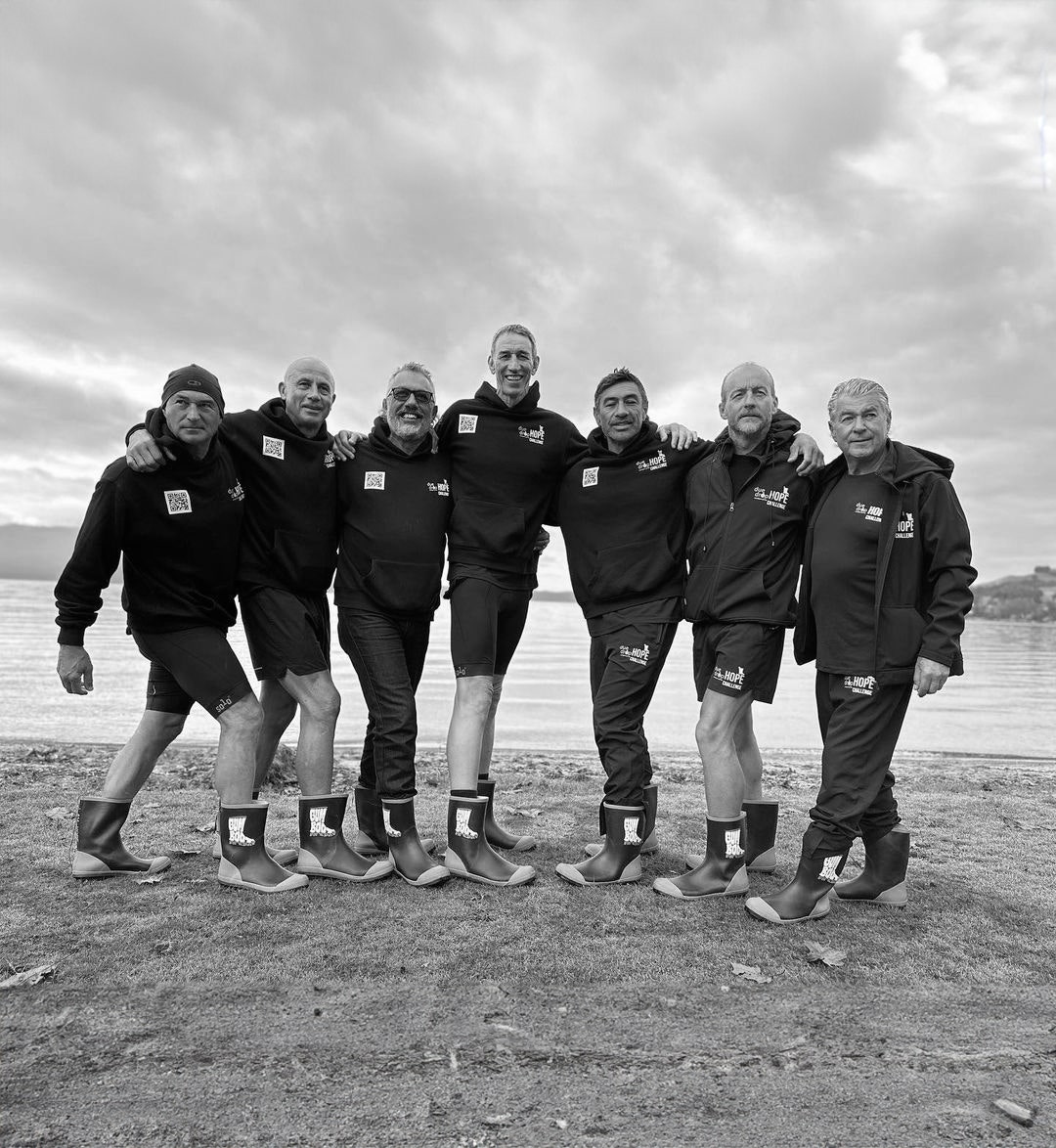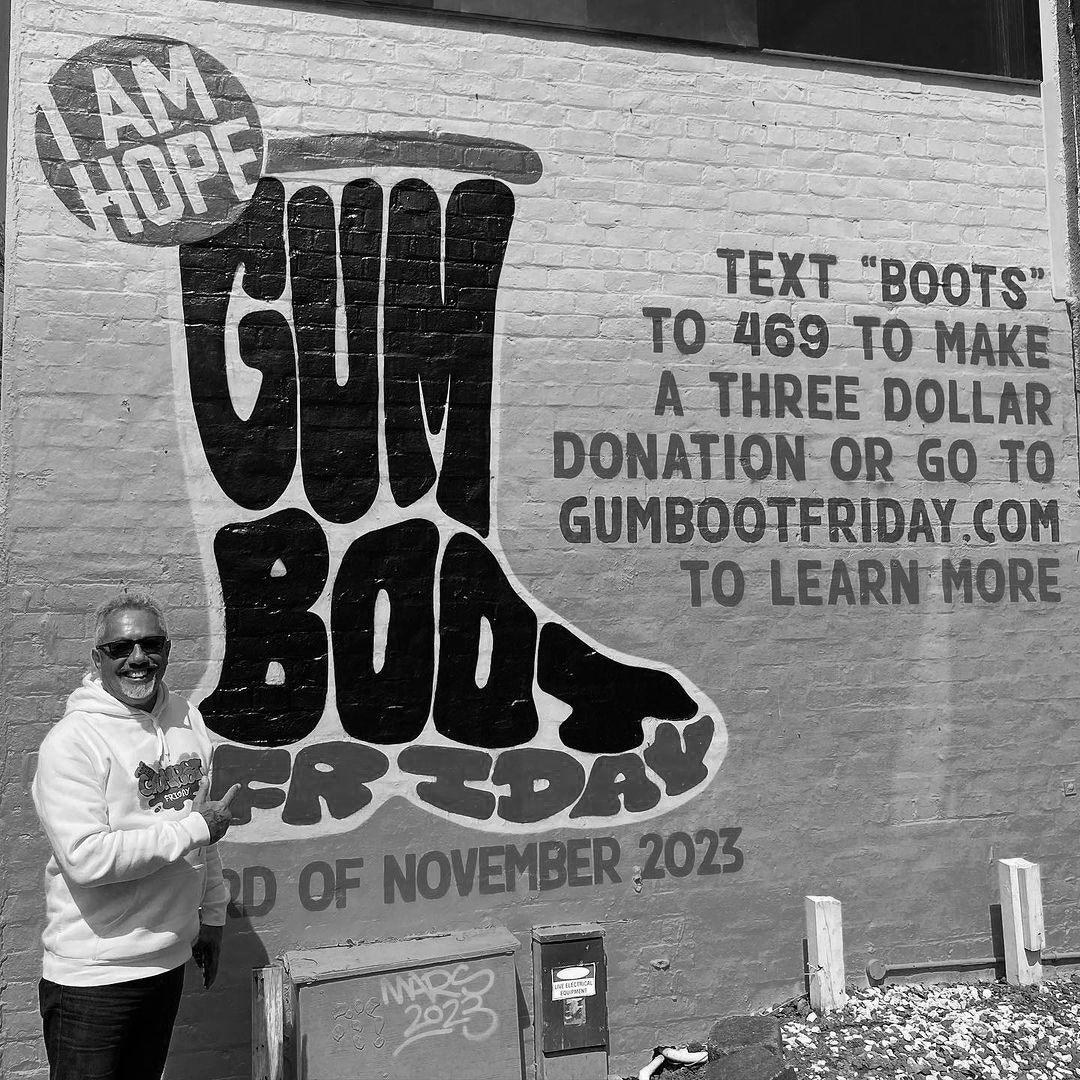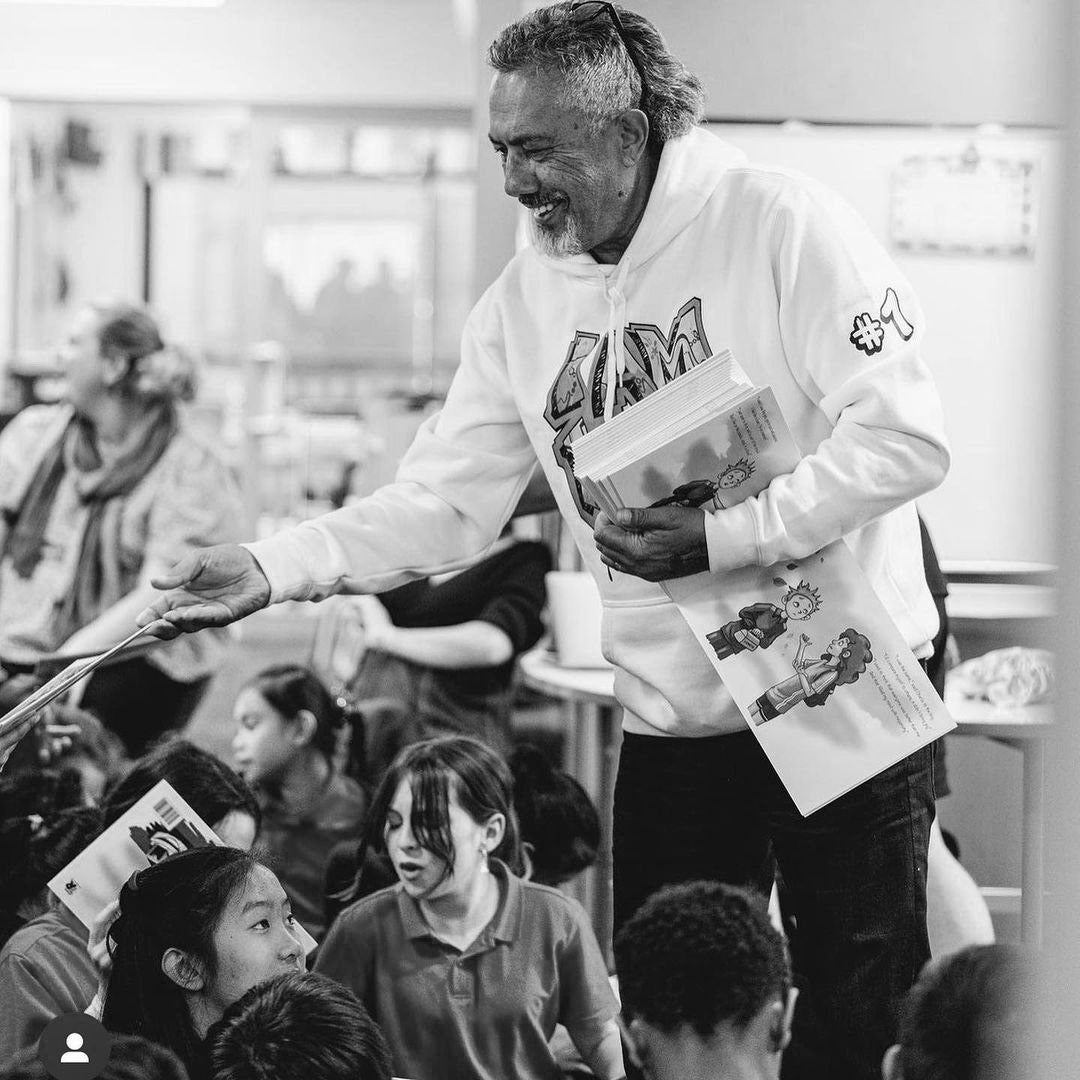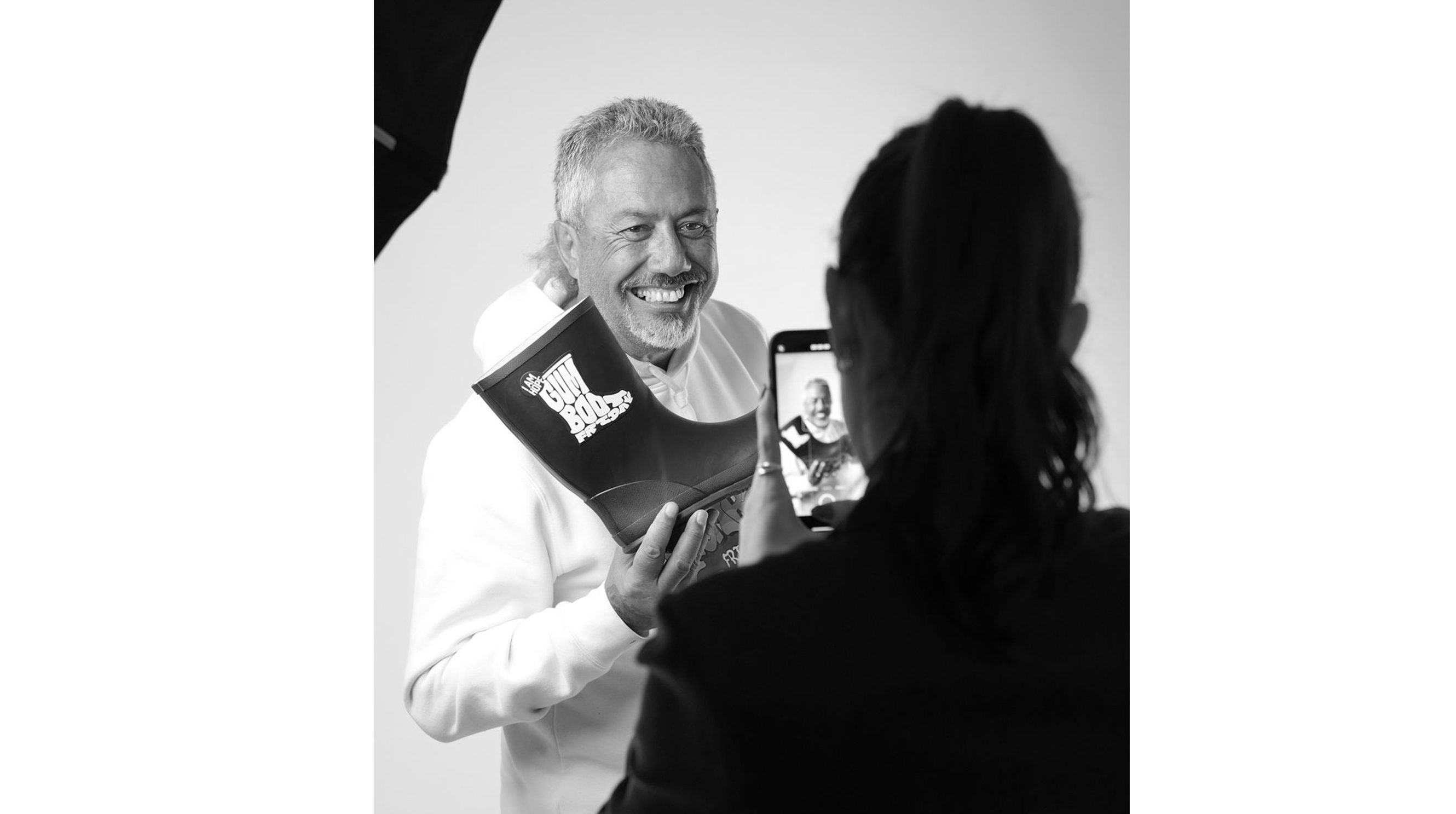What inspired you to become an advocate for mental health awareness and support?
In 2009, while working as a temporary talkback host on Radio Live, I shared my own challenges with self-doubt and imposter syndrome on air, thinking I was the only one experiencing these feelings. The overwhelming response from listeners, who called in to share their similar experiences, was eye-opening. It was the first time I realised I wasn’t alone in my struggles. This experience highlighted the power of vulnerability and the shared human experience of mental health challenges, inspiring me to advocate for mental health awareness and support.
Can you share a pivotal moment or experience that solidified your dedication to this cause?
The turning point for me came in 2013 when a school principal from rural Northland got in touch. The Northland area was going through a tough time, after a spate of suicides by young people in 2012. This, as you can imagine, had a devastating effect on his students. He knew me from my radio show and thought I could help by talking to the kids. My original plan was to go up, tell a few jokes (I was a stand-up comedian at the time) and give them a laugh a bit, hoping it would cheer them up. But once I got there, and felt the burden these kids were carrying, I realised telling jokes wasn't going to cut it. So, I ended up sharing my own childhood story about dealing with my inner demons and how that led me down a path of drug and alcohol abuse for 30 years as I tried to escape my problems.
What surprised me was how many students related to what I was saying. By being honest about my struggles, it encouraged them to open up about theirs. We ended up having an amazing chat for about 30 minutes, unlike any conversation I've had before with young people. It hit me then that maybe the way adults, including myself, talk and behave around young people — never showing our own struggles or vulnerabilities — might actually be making things harder for them. It made me think about how tough it must be for kids today, looking up and seeing all these adults pretending they’ve got their shit together, and rarely show true emotions like fear and anxiety. That’s gotta be devastating for a kid who’s riddled with uncertainty and having no role models showing them that self-doubt is a normal part of life. That day really changed my perspective and strengthened my resolve to keep pushing for better mental health awareness and support, especially in how we communicate with the younger generation.


How do you see the impact of initiatives like Gumboot Friday in breaking down the stigma surrounding mental health?
Gumboot Friday offers free counselling for young people aged 5 to 25, making it different from government counselling by focusing on early intervention rather than crisis intervention. Unlike the state services, where young people need a doctor's diagnosis of mental illness before they can see a counsellor, Gumboot Friday provides easy access, a huge range counsellors without the need of a certificate they are mentally unwell. The initiative aims to change how society views counselling, from being seen as a crisis intervention to “it’s just the conversation. This change is working, as seen by the increase in sessions from 550 a month in 2021 to 3,400 a month in 2023, showing it's making a real difference in reducing mental health stigma.
What challenges have you encountered while working to improve mental health support in New Zealand, and how have you navigated them?
The biggest challenge in improving mental health support in New Zealand has been overcoming the traditional barriers and dealing with bureaucracy. Often, it feels like the gatekeepers of the system are more concerned with protecting their own positions than with helping vulnerable people. Our system is crisis-driven, meaning a young person must reach a crisis point before they're considered for help. Shockingly, only 2% of those presenting with mental health issues actually receive support from services. To illustrate, out of 100 kids who go to the hospital with a problem, only two will get the help they need, highlighting why our mental health service isn't working effectively.
Our goal is to shift the focus towards early intervention, where counsellors can address small issues before they escalate into serious problems or suicidal thoughts. However, counselling is currently viewed as something for crisis situations only, and access to it requires a mental illness diagnosis, which brings its own stigma. It's frustrating that Health New Zealand doesn't seem to understand that kids don’t want to see a counsellor when they’re not well, they go to see a counsellor to stay well. Navigating these challenges requires persistent advocacy for a change in perspective, emphasising the importance of early, stigma-free access to mental health support.
Can you elaborate on the importance of community involvement and collective action in addressing mental health issues?
Addressing mental health issues effectively requires community involvement and collective action because solving a problem starts with talking to those who are directly experiencing it. That's why listening to young people about the challenges they face today is crucial. Imagine a machine with three cogs: the first cog represents clinicians, the second cog bureaucrats, and the third cog communities. Currently, the first two cogs, bureaucrats and clinicians, are working together smoothly, but the third cog, representing the community, is off to the side, spinning independently. For real change to happen, all three cogs need to work in harmony. It's only through this integrated approach, involving professionals, policymakers, and the community, that we can create meaningful and sustainable improvements in mental health support..
What strategies do you employ to ensure that mental health resources are accessible to everyone, especially those in marginalised communities?
There are no marginalised communities when it comes to mental health, as mental illness does not discriminate and everyone is struggling to get help. Unfortunately, mental health has turned into a political football, with individuals from various communities, ethnicities, and economic backgrounds struggling to access necessary services. This situation seems to be a classic case of divide and conquer, adversely affecting everyone involved. To combat this, we've established Gumboot Friday, a platform offering free counselling to anyone aged 5 to 25, regardless of their ethnicity or economic status. Despite conflicting messages from different sectors, our data consistently shows that mental illness affects people indiscriminately. Hence, our guiding philosophy is "they are all our children," ensuring that everyone can receive the help they need, whenever and wherever necessary.


How do you envision the future of mental health advocacy and support in New Zealand, and what role do you hope to play in it?
Sadly, I'm not optimistic about the future. The system often tries to push back against those of us trying to make a difference, viewing us as threats to the usual way of doing things. In the mental health sector, there's a strong belief that the 'experts' know best, and questioning them is seen as dangerous, even though we're already facing a crisis with rising numbers of deaths. The real issue is about who gets to control the story, because controlling the narrative means controlling the funding. My aim is to make complex issues understandable to everyone, which seems to make me a target because people who are informed start to ask questions and seek change. As for the funding, I'm not interested in it for myself, but I see so many community groups doing incredible work that could really use that support.
What advice would you give to individuals who are struggling with their mental health or want to support others in their communities?
I don't give advice to people dealing with mental health problems because they're already getting plenty of it from others. My message is for those who aren’t facing these struggles. If you think someone is having a hard time, just listen to them. Don’t try to fix their problems or just walk away. People struggling don’t like it when they get advice they didn’t ask for or when others give up on them because they can’t help. For example, if I’ve lost someone I care about, it’s not helpful for someone else to talk about their own loss as if it’s the same. Everyone deals with tough times differently, even if we’ve gone through something similar. The best thing you can say to someone who’s struggling is, “I can’t imagine what you’re going through, and I don’t have the solutions, but I’m here for you if you need someone.”
As a leader in this industry, what do you believe are the most critical steps for creating lasting change in the way society perceives and addresses mental health?
Stop talking and start listening.



